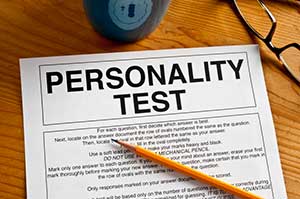On the whole
 There is a theory among healers and wise-elders, dating back some 2500 years, that everything about our world — and us — interconnects. Illness and wellness could not be understood in isolation from life’s social, emotional, and habitual patterns and practices. These healers and wise-elders treated the whole person, not just their physical symptoms.
There is a theory among healers and wise-elders, dating back some 2500 years, that everything about our world — and us — interconnects. Illness and wellness could not be understood in isolation from life’s social, emotional, and habitual patterns and practices. These healers and wise-elders treated the whole person, not just their physical symptoms.
Modern medicine tends to treat illness in isolation, and we often are bewildered why some people become severely ill when they practice good nutrition, exercise all the time, and “seem” to live a healthy lifestyle. Despite scientific advances we still have little appreciation of the interconnectedness and unity of mind and body, and how each influences the other in terms of illness and wellness.
Some have made the argument that people do not become ill despite their lives but, rather, become sick because of their lives – beyond positive lifestyle behaviors. Our thoughts and unconscious emotions, in addition to our lifestyle choices, govern much of our physiology through the mechanisms of stress-modulated bodily functions. It is well known that how people respond to stress directly affects hormone secretions, immune responses, and the development of inflammation. There is little debate about this.
Personality and disease
The idea that certain personality types can lead to particular diseases dates back at least to Hippocrates. Keen-eyed physicians of antiquity were aware that individuals with similar personality traits were more likely to develop certain illnesses. Early observations and some research (Science News, 1987) reported people with a pessimistic and generally “negative” approach to interactions were much more likely to develop mental disorders and cancer – especially cancers of the stomach, pancreas, rectum, large intestine, and lymph, as well as multiple myeloma and Hodgkin’s disease.
Additionally, we know from other research (Psyc Med, 2002) that certain personality traits strongly associate with how people perceive their own health. After studying a large sample of adults between ages 25- 74 researchers found that regardless of whether people were healthy or ill, different personality traits consistently associated with certain diseases, even after adjusting for factors like age, gender, race, marital status, and education.Most early studies linking personality to disease were observational, involving individuals who already were sick. Medical scientists were justifiably skeptical of any link between personality and disease, since trying to test if personality traits contribute to illness, or if illness causes personality traits is messy. How can scientists determine a specific cause and effect when the testing methodology and relevant factors are not well understood?
Research involving healthy people is a good start. The best option would be to launch an investigation in which the researchers first characterize participants’ personality traits, and then monitor the subjects over an extended period of time, recording any illnesses. This would make it possible to determine whether a causal correlation exists between personality traits and development of different diseases.
A breakthrough study
 One of the first defensible studies to address the question of personality-linked disease was published in 1982 by R. Grossarth-Maticek, a Yugoslavian psychologist. Grossarth-Maticek identified a large random sample of subjects and recorded each person’s physical health and behaviors, including smoking and drinking status. Grossarth-Maticek then devised and used several measures of personality to divide people into six categories, including one prone to develop cancer; one prone to develop heart disease; and one prone to good health.
One of the first defensible studies to address the question of personality-linked disease was published in 1982 by R. Grossarth-Maticek, a Yugoslavian psychologist. Grossarth-Maticek identified a large random sample of subjects and recorded each person’s physical health and behaviors, including smoking and drinking status. Grossarth-Maticek then devised and used several measures of personality to divide people into six categories, including one prone to develop cancer; one prone to develop heart disease; and one prone to good health.
Individuals in the group described as “prone to develop cancer” displayed inhibited, self-centered expression and a helpless, victimized personality. Individuals in the group described as “prone to develop heart disease” displayed a hostile, aggressive personality style and barriers to self-centered expression. Researchers followed subjects in each group for at least 10 years, and some for 13 years.
The results were astonishing. Grossarth-Maticek was able to predict death from cancer with six times greater accuracy than predictions based on cigarette smoking or other biometric data. In the group classified as “prone to develop cancer,” almost half died from the disease, but fewer than 1 in 10 died from heart disease. Among those predicted “prone to heart disease,” more than a third died of heart disease, but only 1 in 5 died from cancer. Among the group predicted to be prone to good health, there were few deaths beyond what would be expected.
This research raised many an eyebrow among colleagues in different fields. It was very controversial, to say the least! In fact, criticism was widespread, and some even suggested scientific fraud (Psychology Today, 1988). Editorials like one published in the prestigious New England Journal of Medicine in 1985 led many scientists and the lay public to believe that research even suggesting a link between disease and personality was nothing more than folklore.
Follow up
Grossarth-Maticek did a follow-up study to answer some of his critics. This time the research attempted to see if disease outcomes could be affected by changing selected personality traits. This surely would point to a cause-and-effect conclusion. Researchers identified a large group of individuals with disease-prone personalities. Next, the group was randomly split. Half received counseling that included modeling, suggestion, relaxation, visualization, desensitization, and other standard behavior techniques used to modify personality. The other half received no counseling at all.
Again, the results were clear. The counseling group showed significantly lower death rates from both cancer and heart disease compared to the no-counseling group. Grossarth-Maticek later repeated these studies with another noted psychologist (Med Psych, 1988). Together they found they could reduce by half the death rates from cancer and heart disease with as few as six hours per week of therapy.
Controversy continues
 Contemporary research on personality and health continues to inspire controversy for many reasons. First, many physicians simply are not trained to think this way; we are in an era of fix-it medicine that does not reward the practitioner who tries to understand underlying causes for disease.
Contemporary research on personality and health continues to inspire controversy for many reasons. First, many physicians simply are not trained to think this way; we are in an era of fix-it medicine that does not reward the practitioner who tries to understand underlying causes for disease.
Second, our medical delivery system pays far more for mechanical “procedures” than for knowledgeable patient “healing.” A surgeon who removes a diseased kidney makes hundreds or thousands of dollars for an hour’s work; not so for a doctor who spends an hour or more talking to a depressed patient troubled by headaches or anxiety, and who has “surprisingly” developed an illness like irritable bowel syndrome or cancer of the stomach. Finally, many physicians still think of the mind and body as two separate entities that do not affect one other.
Patient histories seldom focus on issues not related to the physical; emotional experiences or psychological states that existed before the onset of illness often are disregarded. Physicians are trained to treat each of the presented physical symptoms: medications for inflammation and pain, operations to remove diseased organs and tissues, or physiotherapy to restore mobility. When no immediate cause for an illness is found, doctors often prescribe patients an assortment of drugs, refer them to another physician, or leave them alone to wonder what’s wrong with them.
We all can agree
 Regardless of where you stand on the personality and health controversy, it is clear we all respond differently to life’s stresses and problems. Some of us sail through a bad day or chronic emotional crisis, while others confronted with the same issues fall sick, suffer insomnia or crippling headaches, develop digestive problems, or worse.
Regardless of where you stand on the personality and health controversy, it is clear we all respond differently to life’s stresses and problems. Some of us sail through a bad day or chronic emotional crisis, while others confronted with the same issues fall sick, suffer insomnia or crippling headaches, develop digestive problems, or worse.
There is little controversy that stress can cause physical illness, but why different people respond differently to the same stress remains an elusive problem. Surely, part of the answer resides in different personalities?
While we all have the same general physiological makeup, we all respond differently to stressors based on many factors, including our different personalities, and our behaviors and responses shaped by early childhood experiences, genetic makeup, caregiver styles and limitations, and our current lifestyle choices.
Each of these factors can be viewed as weak links that may determine why stress is apt to affect one person one way while another person remains unaffected. Regardless of illness, there seems little doubt of the existence of a disease-prone personality and of an immune-prone personality, one whose hardiness enables a person to tolerate the ravages of stress without becoming ill.
In the 2011 book, When the Body Says No: Exploring the Stress-Disease Connection (Wiley, 2011) author Gabor Mate’ illustrates with many examples from his medical practice how the “civil war inside the body” needs to be treated with more than a biological view, paying attention to underlying hidden stresses rooted in emotions that are deeply implicated in the causation of illness or the restoration of health. People interested in this topic may find the book very interesting.
References
- http://www.attitudefactor.com/grossarth.htm
- Angell, M., “Disease as a reflection of the psyche.” New England Journal of Medicine, 1985, 312:1570-2.
- Bower, B., “The character of cancer.” Science News, 1987.132:120.
- Eysenck, H.J., “Personality, stress, and cancer: Prediction and prophylaxis.” British Journal of Medical Psychology, 1988. 61:1, 57-75.
- Fishman, J., “Fighting cancer and heart disease: The character of controversy.” Psychology Today, Dec. 27, 1988.
- Goodwin, R. and Engstrom, G., “Personality and the perception of health in the general population.” Psychological Medicine, 2002. 32(2):325-32.
- Grossarth-Maticek, R., et al., “Psychosomatic factors in the process of carcinogenesis: Preliminary results in the Yugoslavian prospective study.” Psychotherapy and Psychosomatics, 1983, 40:191-210.
- Grossarth-Maticek, R., et al., “Psychosomatic factors in the process of carcinogenesis: Theoretical models and empirical results: Psychotherapy and Psychosomatics, 1982, 38:284-302.
- Holt-Lunstad, J., “Social relationships and mortality risk: a meta-analytic review.” PLoS Medicine, 2010. Jul 27;7(7):e1000316. doi: 10.1371/journal.pmed.1000316.
- Horowski, R., et al., “From Wilhelm von Humboldt to Hitler: Are prominent people more prone to Parkinson’s Disease?” Parkinsonism & Related Disorders, 2000. 6:(4)205-14.
- Lemogne, C., “Hostility may explain the association between depressive mood and mortality: Evidence from the French GAZEL cohort study.” Psychotherapy and Psychosomatics, 2010. 79(3):164.
- Marin, T.J., “The interpersonally sensitive disposition and health: An integrative review.” Psychology Bulletin, 2013. 139(5):941.
- Newton, T.L., “Cardiovascular functioning, personality, and the social world: The domain of hierarchical power.” Neuroscience & Biobehavioral Reviews. 2009. 33(2):145.
- Penner-Goeke, K., et al., “Reductions in quality of life associated with common mental disorders: Results from a nationally representative sample.” Journal of Clinical Psychiatry, Aug. 18, 2015. [Epub ahead of print]
- Sieurin, J., et al., “Personality traits and the risk for Parkinson disease: A prospective study.” European Journal of Epidemiology, July 1, 2015. [Epub ahead of print]
- Yousfi, S., et al., “Personality and disease: Correlations of multiple trait scores with various illnesses.” Journal of Health Psychology, 2004. 9:627-47.



Robert Erard - 1983
Diseases can be prevented with “as little as six hours a week of therapy.” Is this a typo? Six hours a week of therapy in Michigan could easily cost $50,000 a year. Even among those in psychoanalysis, few people receive six hours a week of therapy.
Reply
Susan Dara - 1973
Perhaps close, strong relationships of sharing life events and concerns by talking and listening could be considered a type of therapy. After talking over trauma or hurts with girlfriends and a spouse, I usually feel better and more at ease with myself.
Carolyn Myss has explored the mind-body connection with similar thoughts/conclusions, though heavier on the mind-body-spirit observations.
Reply
Karen Bell - 1970, 1992
My father was an old-school physician. He used to say that people either got heart disease or cancer, but not both. This certainly fits. I asked a young, modern physician about his idea once, and she indicated that she thought it was hogwash.
Reply
Ashish Gawade - 2005
Mind-Body: This is a very interesting conclusion. I would like to point out that there are eastern civilizations that have believed that mind come first and then body. Mind affects the body.
Ancient Indian medical science called the Ayurveda, also pin points to the link between good deeds (altruism and ethical behavior both) and good health. Thus, the more “good deeds” we do the healthier we might get.
Coming to modern science, Manashakti Research Center (www.manashakti.org) in western India has done lot of work to establish mind-body-disease connect. I volunteer with them. If some one is interested in talking to them, I will be happy to make introductions. Thanks.
Reply
Joyce Frye - 1970
Homeopathic practitioners are well aware of this connection, hence treating “the patient, not the disease”. The section in a homeopathic repertory titled “Ailments from…” is large.
Reply
Karen Markey
I agree with Susan Dara’s suggestion to find a trusted friend to talk things over. I’m often on the receiving side, talking to a friend who unloads their misfortunes on me. When they do, I’m careful to listen and express empathy. All too often, we think that we have to “fix” a friend’s misfortunes when that’s all we need is to do is “be there” for our friends.
Reply